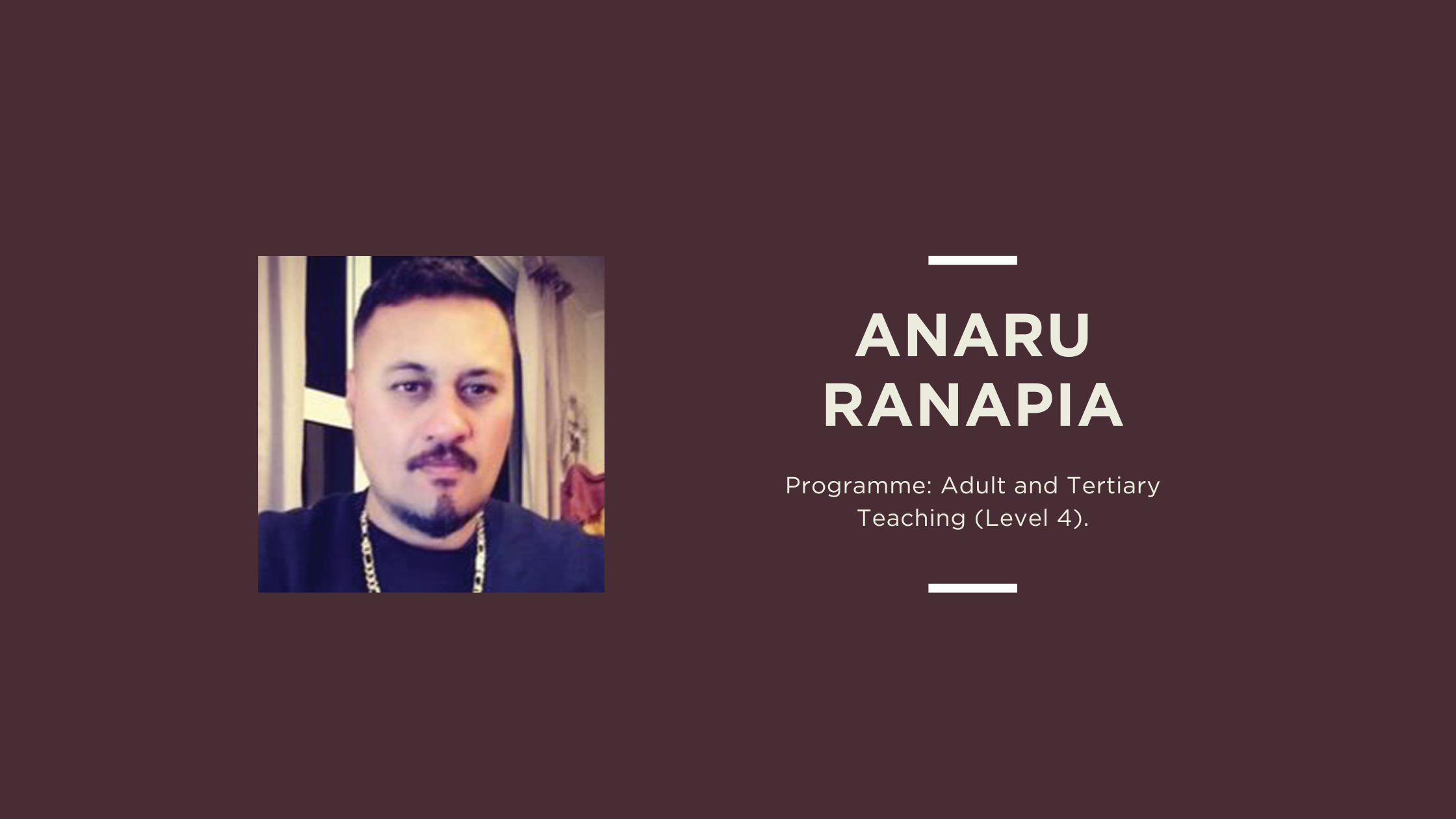“Our family didn’t use their intellect, for work we dug holes and did heavy lifting. But I knew there was more for me.”
Anaru encourages Māori youth to follow their passions. He knows “if they are surrounded by positive narratives the world is their oyster”. “I grew up in Whakatāne. Our family didn’t use their intellect, for work we dug holes and did heavy lifting. But I knew there was more for me.
I didn’t think I was academic. I’d been told I was dumb at school but the hip hop scene opened my eyes. I wanted to create posters and video clips for my mates, so I enrolled in media design school. I just jumped into it. I had no idea how to use a computer. I didn’t have an email. I was pretty green. I did 2 years there and realised that learning wasn’t as much of a mountain as I thought it was. In my last year I got a scholarship to Weta Productions.”
Later, an eye condition meant a change in direction. “A friend told me about tutoring. I ended up working in decile 10 schools. These kids were awesome, but I wanted to take my newborn son back to the whenua, to his whānau. Back in Whakatāne I could see the youth were like I had been. They needed to find what they were passionate about. So, my new drive was to create something that could change their course, but I needed validity.
Doing the Certificate in Adult Education and Training gave me insight into how the psyche works, how we develop and retain information. Before, I just thought everyone learned the same.”
About barriers to his own learning: “It was the self-doubt. The voice in my head. It’s something I know a lot of Māori students have. I thought I was dumb. My family were labourers that’s what I thought I should do. But now I realise we were limiting our own capabilities. Youth need belief that we can do whatever we set our mind to.
A lot of kids already have skills, it’s understanding how to utilise them. I knew there was disparity between Māori and Pākehā, but I didn’t fully understand until I did this course. If we want solutions and we do want solutions, then we really do have to be educated. To solve problems in our towns we need to have access to people with skills.”

